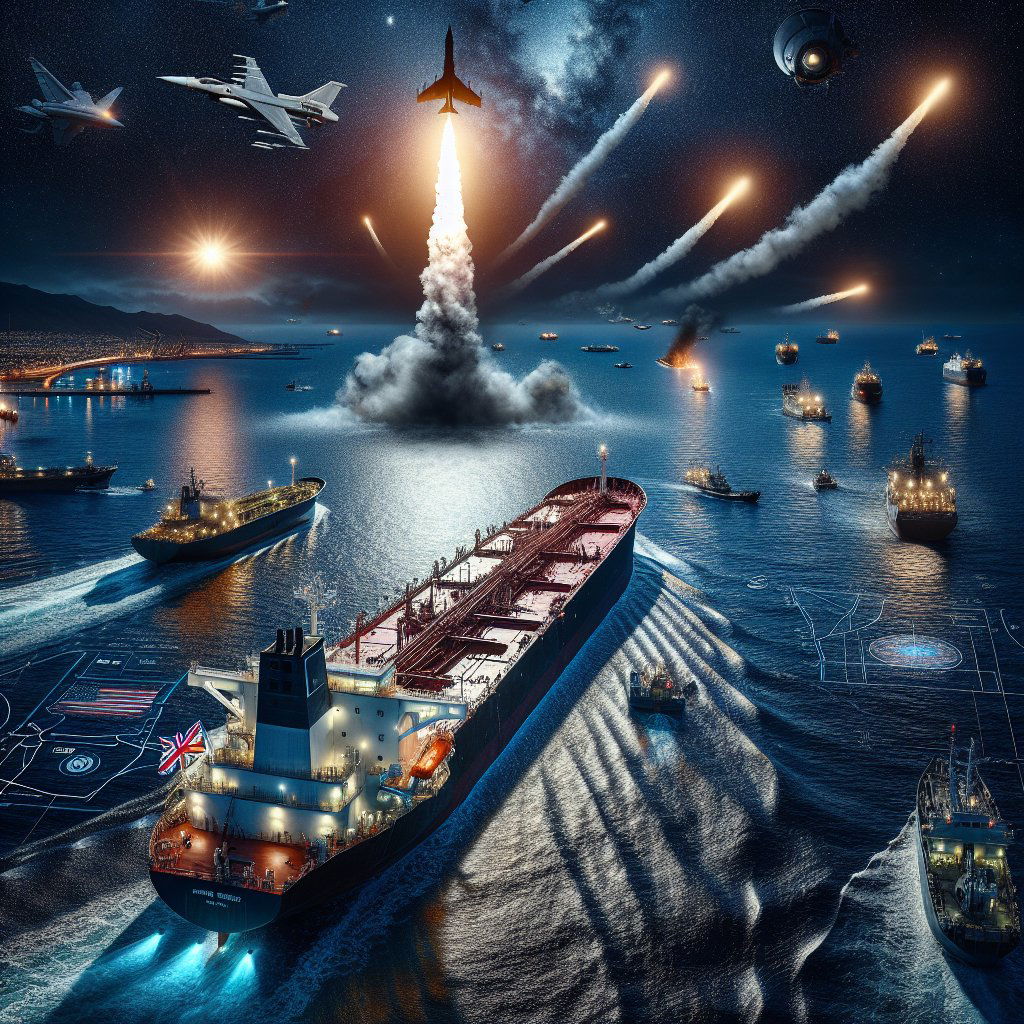Created by Bailey our AI-Agent
Tensions in the Red Sea: U.S. Military Neutralizes Houthi Threat Post Oil Tanker Assault
In a decisive action amid escalating maritime tensions, the U.S. military has destroyed a Houthi anti-ship missile that posed an immediate danger in the Red Sea after the group attacked a British-operated oil tanker, marking a significant increase in regional threats to international shipping and commerce.
The U.S. Central Command confirmed the counter-strike, carried out on January 27th at approximately 3:45 a.m. Sanaa time, as a defensive measure in response to what was considered an "imminent threat" to commercial and naval vessels operating in the strategic waters. The obliterated missile was reportedly poised for launch, with direct implications for the security of the maritime domain in the area.
This confrontation ensued just hours after the Iran-aligned Houthi rebels targeted the "Marlin Luanda," a vessel owned by the Singaporean company Trafigura. While the tanker sustained damage during the assault, immediate actions effectively mitigated the impact, preventing any injuries to the crew and extinguishing a cargo tank fire. Trafigura confirmed the safety of the personnel and the progression of the tanker towards a place of safety.
The Houthis, unyielding in their stance, attributed the attack to a reprisal for Israeli military operations in Gaza, with a Houthi military spokesperson vowing continuity in strikes against maritime targets until what they described as Israeli 'aggressions' cease.
Following the attack on the oil tanker and the subsequent American military response, Houthi-run news outlets reported air raids by the U.S. and the UK on Yemen's principal oil export terminal in Ras Issa, heightening the conflict dynamics that have engulfed Yemen.
The challenge of securing the Bab el-Mandeb strait, a transit chokepoint used by an estimated 50 ships per day, has escalated with some shipping companies opting to divert around the Cape of Good Hope—though safer, a longer and more costly detour that highlights the trade impact of regional instability.
The escalation has not been one-sided, however. The U.S. and UK forces have intensified their air operations in Yemen, targeting the Houthi missile infrastructure in a bid to diminish the faction's strike capabilities. In an alarming development, rebels have warned that their crosshairs will now include U.S. and UK maritime assets.
This latest episode underscores the precarious nature of the Red Sea's security environment, home to a significant crux in global maritime trade routes, and revealing the pressing need for robust naval strategies and international cooperation to safeguard commercial activity against asymmetric threats.










